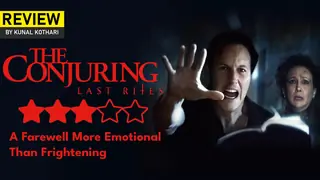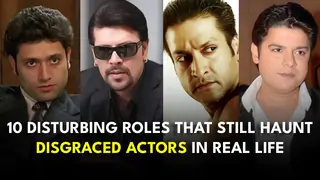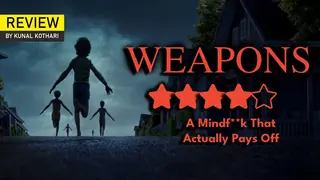Edward Norton on the 20-Year Journey of 'Motherless Brooklyn' to the Big Screen
He revealed how e prepared to play a character with Tourette Syndrome and the secret to transforming Jonathen Lethem's novel from 1990s era New York to the 1950s.
Published: Sunday,Sep 08, 2019 12:49 PM GMT-06:00

Edward Norton is not a name that usually needs a lot of introduction or reminding of but nevertheless, the ones that have been living under a rock may just have seen a cult movie called Fight Club. A movie that changed the way many perceive films and filmmaking.
But of course, Norton has been a part of several films and series that are legendary indeed. The actor-writer-director is now all set to play the character of Lionel Essrog in the adaptation of one of his dream projects, Motherless Brooklyn which is also written and directed by him.
In a recent interview with The Hollywood Reporter, Norton talked about the 20-year journey of adaptating the novel into a film.
On acquiring the rights of the film, "At the time I had just gotten off of making American History X [1998] at New Line. They said, "What do you want to work on next?" and I said I read this book and I would love to take a crack at it. Those guys helped me acquire the rights to it. I said to them at the time it wasn’t something that I was going to jump on right away. I was heading into Fight Club [1999] and I knew that was going to take a year or more, and I had another film I wanted to direct. I think I said to them, "I may put this on the shelf for a bit but I will get to it eventually." … I think Toby Emmerich has to get some kind of award for patience and support of an artist for the years in which he continued to coax me and draw it out of me."
On changing the novel's actual period of 1999 to the '50s for the film, "One part of the impulse was simply that Jonathan’s characters are written in a very 1950s hardboiled detective style. I told him that I think that film is very literal and that if we try to make a film about the '90s in Brooklyn with guys acting like '50s gumshoes, it will feel ironic. I didn’t want it to be ironic and he agreed with that. The second big part of the impulse was that I have always wanted to look at what happened in New York in the mid-'50s. I felt like that was the period when a lot of enormous institutional corruption and racism essentially baked itself into the fabric of modern New York permanently. A lot of what we still struggle within New York and a lot of what we are seeing in the political land today was taking place in a very subversive way back then."
We certainly cannot wait to see the film soon.
Join Our WhatsApp Channel
Stay updated with the latest news, gossip, and hot discussions. Be a part of our WhatsApp family now!
Join NowYour reaction
 Nice
Nice Great
Great Loved
Loved LOL
LOL OMG
OMG Cry
Cry Fail
Fail
















Post a comment